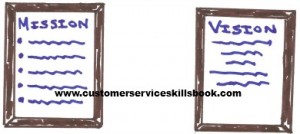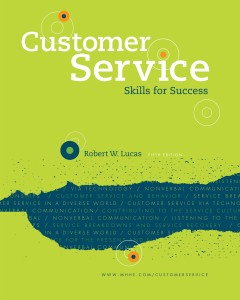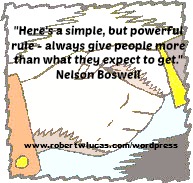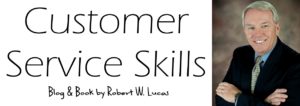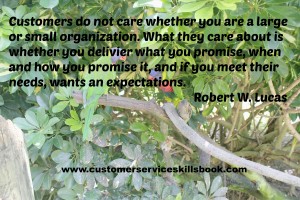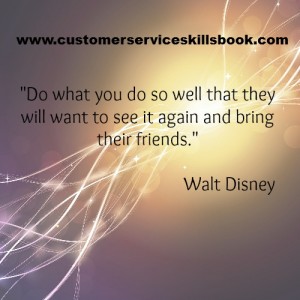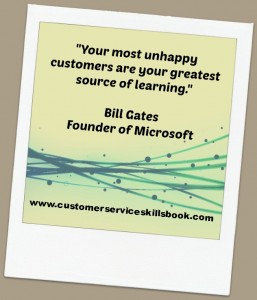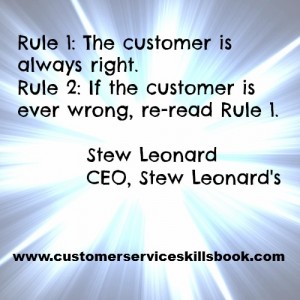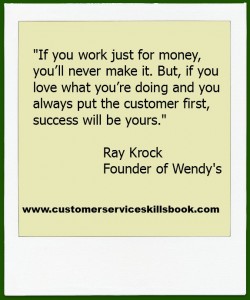The Role of Mission and Vision Statements in Customer Service
Most successful organizations have written mission and vision statements that answer the questions of “What do the organization do?” and “Why does the organization exist?” Mission statements should always tie back to the vision statement and should be incorporated into the infrastructure (e.g. HR policies and procedures) and the service culture of an organization. Both mission and vision statements succinctly define the service culture and how the organization will act related to satisfying customer needs, wants and expectations.
Leadership, real and perceived, is crucial to service success. In successful organizations, members of upper management make themselves clearly visible to frontline employees and are in tune with customer needs and expectations. They also “walk the talk” and continually drive and communicate the mission and vision of the organization through their words, actions, and decisions. Ultimately, these measures set the tone for a more ethical, productive, and customer conscious organization.
If all employees are aware of what their organization stands for, how it accomplishes its mission, and where it is headed in the future, they can play a crucial role in creating a service culture that strives to identify and meet customer needs, wants, and expectations.
Part of ensuring that everyone in the organization is working toward the same goals is to ensure that all policies, infrastructure, and actions support the mission and vision statements. For example, performance appraisals should have language that addresses how supervisors, managers, and employees are doing at addressing established goals and objectives and actions taken to uphold ethical standards. Additionally, all individual and department goals should be tied to the organizational mission and goals.
Although it is wonderful when organizations go to the trouble of developing and hanging a nicely framed formal mission or vision statement on the wall, if they are not a functional way of life for employees, they serve little purpose.
For additional ideas and strategies on ways to enhance customer service in your organization, get a copy of Customer Service Skills for Success.
About Robert C. Lucas
Bob Lucas has been a trainer, presenter, customer service expert, and adult educator for over four decades. He has written hundreds of articles on training, writing, self-publishing, and workplace learning skills and issues. He is also an award-winning author who has written thirty-seven books on topics such as, writing, relationships, customer service, brain-based learning, and creative training strategies, interpersonal communication, diversity, and supervisory skills. Additionally, he has contributed articles, chapters, and activities to eighteen compilation books. Bob retired from the U.S. Marine Corps in 1991 after twenty-two years of active and reserve service.
Make Money Writing Books: Proven Profit Making Strategies for Authors by Robert W. Lucas at Amazon.com.
The key to successfully making money as an author and/or self-publisher is to brand yourself and your company and to make yourself and your book(s) a household name. Part of this is face-to-face interaction with people at trade shows, library events, book readings, book store signings, blogging or guest blogging on a topic related to their book(s). Another strategy involves writing articles and other materials that show up online and are found when people search for a given topic related to a topic about which the author has written.
If you need help building an author platform, branding yourself and your book(s) or generating recognition for what you do, Make Money Writing Books will help. Bob’s popular book addresses a multitude of ideas and strategies that you can use to help sell more books and create residual and passive income streams. The tips outlined in the book are focused to help authors but apply to virtually any professional trying to increase personal and product recognition and visibility.

